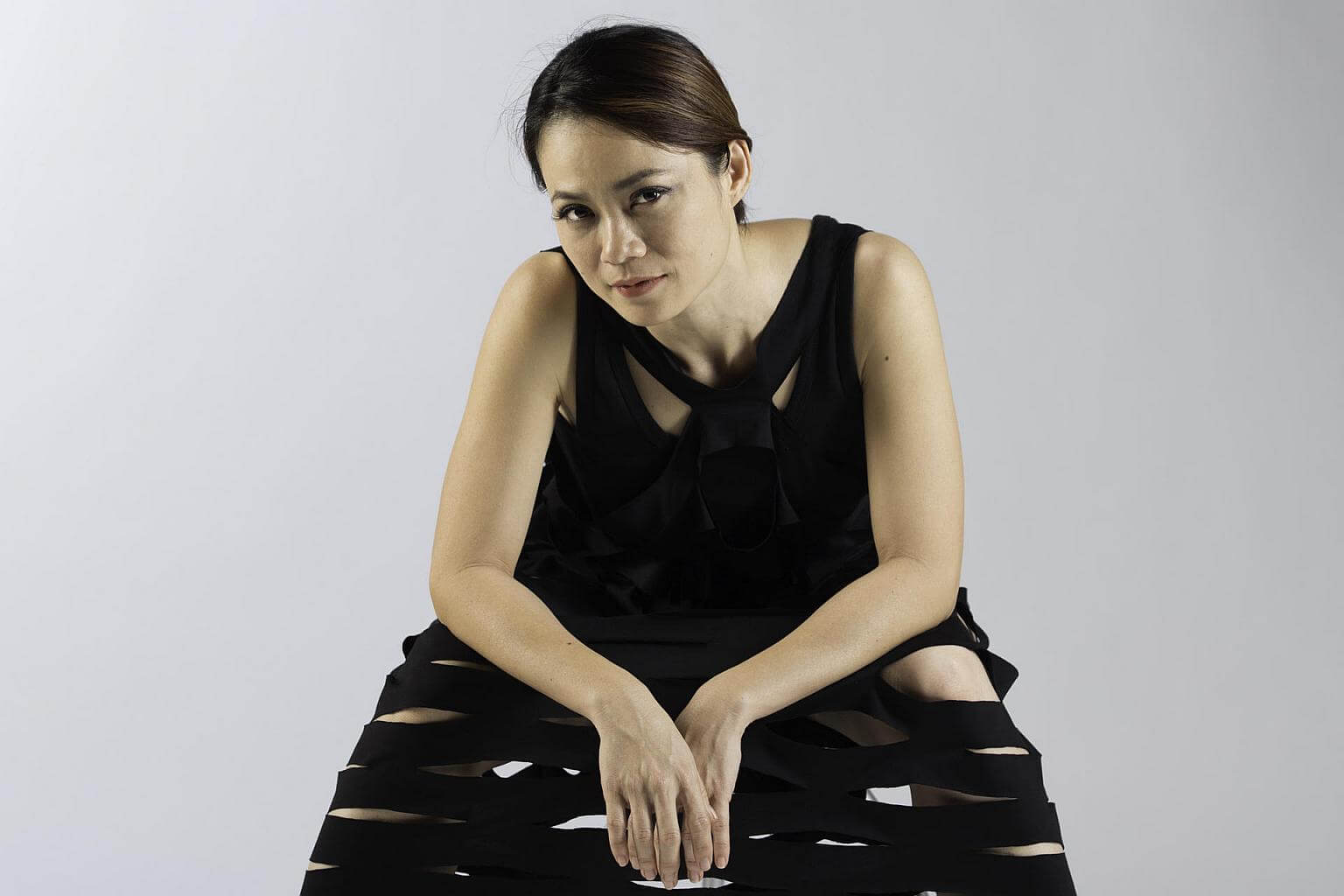Theatre review: Actor, Forty affectionately welcome Yeo Yann Yann back to local stage after hiatus
Sign up now: Get ST's newsletters delivered to your inbox

Actress Yeo Yann Yann.
PHOTO: THE POND PHOTOGRAPHY
Adeline Chia
Follow topic:
ACTOR, FORTY
The Necessary Stage
Esplanade Theatre Studio/Friday (Feb 3)
The character Yeo Yann Yann plays is desperate. Her career is in the doldrums despite winning a Best Actress award in a Chinese film festival two years ago. In the middle of her drought, she suddenly gets a call back to play the lead in a new remake of Ann Hui's 1995 tearjerker Summer Snow.
This is her chance for a comeback, but a new discovery threatens to ruin everything: She is pregnant.
This is not the story of the real Yeo Yann Yann, whose career peaked with a Golden Horse for Best Supporting Actress in the acclaimed family drama Ilo Ilo (2013), but a fictional character in the play Actor, Forty, who just happens to bear the same name, age and relatively similar life circumstances.
For followers of Singapore theatre, it is nigh on impossible to separate the feelings one has for Yeo the person with the character, and these feelings, depending on which way they sway, will improve or damage the play.
If you are like me and bear nothing but goodwill, this show would be a warm bath of theatre references and an affectionate way to welcome a fiendishly talented actress back to the local stage after a hiatus.
If you are indifferent to Yeo, you might find the play a bit baggy and filled with in-jokes, with the protagonist's central dilemma inducing only a distant sort of sympathy.
Regardless of your personal proclivities, what is certain is that Haresh Sharma's script plays to Yeo's many strengths.
The confessional mode capitalises on her magnetic and self-deprecating stage presence. Even while churning in personal anguish she keeps her wit. Meditating on the thanklessness of having a baby, she bursts out: "No one is going to write me a review for raising a child!"
Another way the script allows her to shine is by quoting from other shows in cinema and theatre. These could be snippets of past performances from Yeo's CV or other scenes that have moved or inspired her.
Assisted in and out of costumes by po-faced "helpers" who also stand in as supporting characters, she switches characters at turbo speed. Further testing her stamina is Alvin Tan's restless direction, which parks her at a different spot in Kok Heng Leun's open-concept room set every few minutes.
Meantime she gamely cycles through a range of characters, from broad types such as the villainous mother-in-law from Cao Yu's The Savage Land, to more nuanced portraits such as the burdened yet loving daughter-in-law in Summer Snow.
Yeo's a fast worker: give her a few minutes and she can do devastating things. Take, for instance, her turn as the Chinese opera actress played by Josephine Siao in Hu-Du-Men (1996). In that scene, the character is in full Beijing opera regalia giving her farewell performance. Suddenly she freezes in a moment of recognition: in the audience is the son she has abandoned as a baby to pursue her career. In her thank-you speech, with shining eyes and a tight smile belying her great internal haemorrhage, she says: "I have no regrets."
These reenactments are vivid and affecting. But they also have the unfortunate effect of overshadowing the framing story of the actress dreading a baby at 40. Compared to these powerful, bold and decisive narratives, her anxieties about the lack of direction in her life and fears of motherhood - while authentically portrayed - lack urgency and propulsion.
Although Sharma writes several elegant and impressionistic scenes of her emotional struggles, the Angst-ridden Actress just isn't as interesting or compelling as the fictional ones she portrays. Her concerns seem thin and First World.
Like some plays about theatre and actors' lives, Actor, Forty runs the risk of self-absorption and wallowing in a privileged identity crisis that is irrelevant to anyone outside showbiz. Some moments, such as the scene where the character repeatedly asks "Who am I?" threaten to collapse into painful navel-gazing.
Thankfully, the general artistry of Yeo's performance smooths over the rough patches. Her soul-searching eventually leads her to a quote from Tao Te Ching: "The usefulness of a pot is in its emptiness."
This is a good mantra for actors who aspire to being a blank slate; here, it also takes on a greater existential meaning of effacing the ego and priming the self for new beginnings. This play might be the necessary cleansing ritual this sorely missed performer needed for a return, and we can only hope that this actor, at 40, 50 or 60, whether a mother or a grandmother, would continue to tread the boards.
chiahta@sph.com.sg
Correction note: In an earlier version of the story, we said that Yeo Yann Yann won a Golden Horse Award for Best Actress. This is incorrect. It should be Best Supporting Actress. We are sorry for the error.

